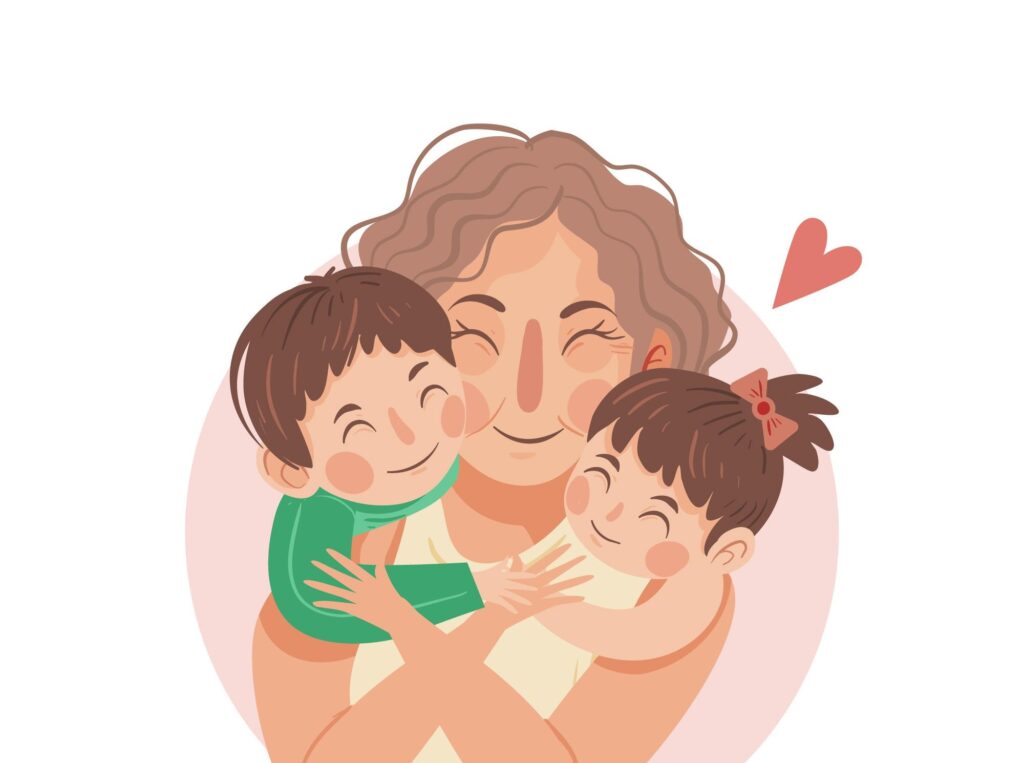Parenting After Infertility: Misconceptions Vs Facts

Parenting After Infertility: Healing & Thriving on Your Family Journey
For people and couples who want to have children, infertility can be a difficult and draining experience. However, a new chapter—one brimming with hope, joy, and fresh difficulties—begins for individuals who eventually overcame infertility and made the journey to parenting. Unfortunately, there are a few common misconceptions about parenting after infertility that need to be dispelled.
Speak to a surrogacy expert right away, so you can get the information you require if you have any queries about what parenting after infertility might entail for you.
You may have preconceived notions about what parenting would be like when you begin following infertility. Parenting is not always a blank slate. This article will examine infertility’s journey, the process of becoming a parent, and dispel some of the most widespread myths.
In this article, we will read:
- Infertility
- The Decision To Pursue Parenthood
- Pregnancy And Parenthood After Infertility
- Misconceptions About Parenting After Infertility

Understanding Infertility
The medical problem of infertility affects a large proportion of people and couples around the world.
It describes the inability to get pregnant following a year of routine, unprotected sexual activity.
Numerous causes, including hormone imbalances, illnesses of the reproductive system, genetic abnormalities, and lifestyle choices, can contribute to infertility.
It is essential to realize that infertility is a medical problem that calls for understanding, support, and the required medical interventions. It is not a personal failing or something to be embarrassed by.
The Decision To Pursue Parenthood
The choice to pursue motherhood after infertility is extremely personal and differs for each person.
Some people might decide to look into adoption, while others might go with assisted reproductive techniques like intrauterine insemination (IUI) or in vitro fertilization (IVF). Some people choose to live child-free lives or think about alternatives to parenthood, such as surrogacy or fostering.
There is no one-size-fits-all method for starting a family after infertility, therefore, it is crucial to recognize and support each person in making their own decisions.
Pregnancy And Parenthood After Infertility
When the long-awaited moment of holding your baby in your arms arrives, the transition to parenthood after infertility can start via any means, including surrogacy, ART, or adoption.
It’s a season of great happiness, thankfulness, and contentment. But it’s important to understand that the trip doesn’t end there.
The psychological effects of infertility might still be felt, and parenthood difficulties might provide further difficulties.
People and couples must approach this new chapter with tolerance, resiliency, and self-care.

Misconceptions About Parenting After Infertility
Here are some of the more common misconceptions intended parents hold to help you get ready for the realities of parenthood after infertility:
1. Assuming That You And Your Baby Will Quickly Bond With Each Other,
When you’ve worked so hard and for so long to bring a baby into your family, you might expect everything to be ideal from the moment they arrive. You’re prepared to be a wonderful parent, joyfully and effortlessly developing a close bond with your baby.
Whether your baby enters your life through adoption or surrogacy, you’ll probably instantly bond with them. However, it’s also common to not feel this connection.
If you fall into the latter category, it doesn’t necessarily follow that you’re a bad parent or that you’ll never experience the kind of connection you’re yearning for.
It might simply take longer. In fact, despite what you might expect, even biological parents who give birth to their children don’t always feel the same kind of immediate bond.
Be patient if you don’t immediately feel a connection with the infant when they are born; you may want to take extra steps throughout your surrogate’s pregnancy to create a link with your baby in gestation.
These things occasionally require time, and if they do, it’s not a judgment on you. Speak to your family-building expert for suggestions and counsel if you ever have any worries.
2. You Will Not Face Postpartum Depression
You might believe that because you didn’t carry your newborn yourself, you won’t have to deal with postpartum depression.
However, any new parent can experience this mental disease. The possibility of experiencing postpartum depression, which can make mothers and fathers miserable at a time in their lives when they ought to be the happiest, can make parenthood after infertility challenging.
3. You Will Financially Recover From Your Infertility Process Quickly
It’s no secret that infertility treatments, as well as procedures like surrogacy or adoption, may be pricey. Although the majority of intending parents take the time to plan a budget for their infertility treatment options, it is not uncommon for them to exceed it when particular treatments don’t work.
After investing so much in becoming a parent, you might expect parenting after infertility to be relatively inexpensive, but unanticipated costs can soon build up.
Expect to be on a tight budget throughout the first few years of parenthood following infertility.A tight financial budget will most certainly extend throughout your newborn’s first couple of years of life.
Having a child is generally expensive, but when your finances are already stretched due to years of infertility treatments, it can feel even more challenging.
That’s why all intending parents must consult with a financial advisor before beginning their treatment – not just for advice on how to fund infertility treatments, but also on how to afford the costs of having a new child.
4. All Our Emotions Related To Infertility Will Disappear
Being a parent after experiencing infertility will make you happier than you’ve felt in a long time, especially if you’ve been trying to have a kid for years. It’s normal to feel overwhelmed with excitement after welcoming a new baby into your family.
However, it’s crucial to recognize that this happiness will not, and should not, erase the months and years of disappointment you endured on the way to this success. Those feelings, as unpleasant as they are, formed you into the parents you are today.
If you expect to be free of these emotions once you have a child, you will be surprised when they resurface, sometimes when you least expect them. For example, someone may comment on your apparent ease in having children, or your child will eventually reach the age when they start their own families—both situations that can bring up feelings of grief and loss all over again.
For example, you may be frustrated by having to describe your pregnancy journey if your child was born through surrogacy or telling individuals who inquire about your child’s adoption story.
Remember that as a parent, you have the choice to include as little or as much detail as you want.
Maintaining a pleasant attitude and addressing any unresolved emotions are critical components of being the best parent possible.
Don’t be hesitant to contact your infertility counselor or surrogacy specialist to help you identify your residual emotions while parenting after infertility.

5. Assuming That You Are A Perfect Parent
Parents who must take intentional, time-consuming actions to have children will most likely have more time to prepare for parenthood. When you consider parenthood, you’ve certainly given much thought to the type of parent you want to be.
Whatever promises you make to yourself during the process, things will always be different once you become a parent.
You may not always meet the goals you set for yourself — and that’s good. It does not make you a poor parent to lose your cool or give in to your child’s requests; it simply makes you human.
Parenting is challenging regardless of the path you take to get there, and it’s unfair to expect you to constantly reach the goals you set for yourself before you even understand what parenting is like.
6. Assuming That You Will Be Happy Forever With Just One Child
After years of infertility, many intended parents believe they will be pleased if they can add just one child to their family. However, after successfully bringing a child into your home, it is common to experience sentiments of desire for another child.
You may feel terrible that your child does not have a sibling to grow up with, or that you want another child after you have invested so much effort into the one you already have.
These are natural emotions, and you should expect them. When you expect to be grateful enough that these cravings will not arise, it can be challenging when they do.
As you prepare for parenthood, it’s also crucial to prepare for the potential of wanting to have another child eventually — whether or not it’s a practical choice for you and your partner.
Conclusion
Parenting after infertility presents its own set of difficulties. Individuals may feel pressure to be perfect parents or anxiety about failing to meet society’s expectations. Furthermore, sleepless nights, round-the-clock caregiving, and juggling responsibilities can be exhausting. It is critical to recognize these difficulties and exercise self-care, seeking help from loved ones or professional services as needed. To help you cope with these issues, both before and after you bring a child into your household, contact a surrogacy specialist or an infertility counselor.
If you’d like to learn more about IVF, Egg Donation, or surrogacy services globally, check out the rest of our website at Complete Surrogacy. We offer legally secure and affordable surrogacy consulting services for FREE.
Our team has over 13 years of experience facilitating surrogacy arrangements, egg donation, and serving as an advocacy resource for infertile couples and LGBTQ individuals seeking to build families.
Our founder and chief surrogacy consultant, Neelam Chhagani, passionately helps couples struggling with fertility challenges. Since starting our surrogacy consulting agency in 2013, we’ve helped welcome over 500 babies for intended parents nationwide.
Our team includes experts from diverse backgrounds with leading reproductive attorneys, professionally trained top fertility doctors, former surrogacy case managers, experienced and kind surrogate mother and egg donor coordinators, mental health professionals specializing in infertility counseling, and a logistic support team to assist you in your chosen surrogacy country.
For more resources on IVF and Surrogacy, browse our other web page- IVF Conceptions.
FAQs Parenting After Infertility
Q1. Even though I’m happy to have a kid, can parenting after infertility be difficult?
Ans. Yes, despite the joy of having a child, parenting after infertility can be emotionally tough. Because of the complexities of the infertility journey, it’s common to feel a range of emotions.
Q2. How should I respond to hurtful comments regarding my infertility journey?
Ans. When confronted with rude comments, creating boundaries and educating others about infertility is critical. You have the option of sharing your experience gently or avoiding damaging encounters.
Q3. Is it natural to experience moments of fear or concern about resuming infertility?
Ans. It’s normal to be concerned about it returning. These worries may occur as a result of previous experiences, but it is critical to focus on self-care, maintain open communication, and seek professional help to manage these fears.
Q4. Where can I obtain support from other infertility patients?
Ans. Support groups, internet communities, and counseling services specializing in infertility and parenthood are excellent places to meet individuals who understand your situation.
Q5. How can I deal with my worry about recurrent infertility?
Ans. Managing the dread of recurrent infertility requires self-care habits, honest discussion with your spouse, remaining informed about reproductive health alternatives, and getting professional help when necessary.
Recommended reads.
- Emotionally Transferring a Surrogate Baby
- Raising an Only Child: 9 Tips for Parents
- Is There a Secret to Happy Parenting?















I was introduced to Neelam by a friend who worked with Neelam for surrogacy. Neelam is absolutely wonderful. I am a single male and the journey to fatherhood is not that easy. Neelam connected me to a program ideal for my circumstances. She was with me throughout the pregnancy providing advice and guidance along the way. I am so grateful I found her and am thrilled today that I have a beautiful daughter. I highly recommend Neelam to anyone who is on a journey to become a parent. Having a child has changed my world for the better. I wish others success with their own journey and recommend you connect with Neelam to find a path that is best for you.
SA (USA)